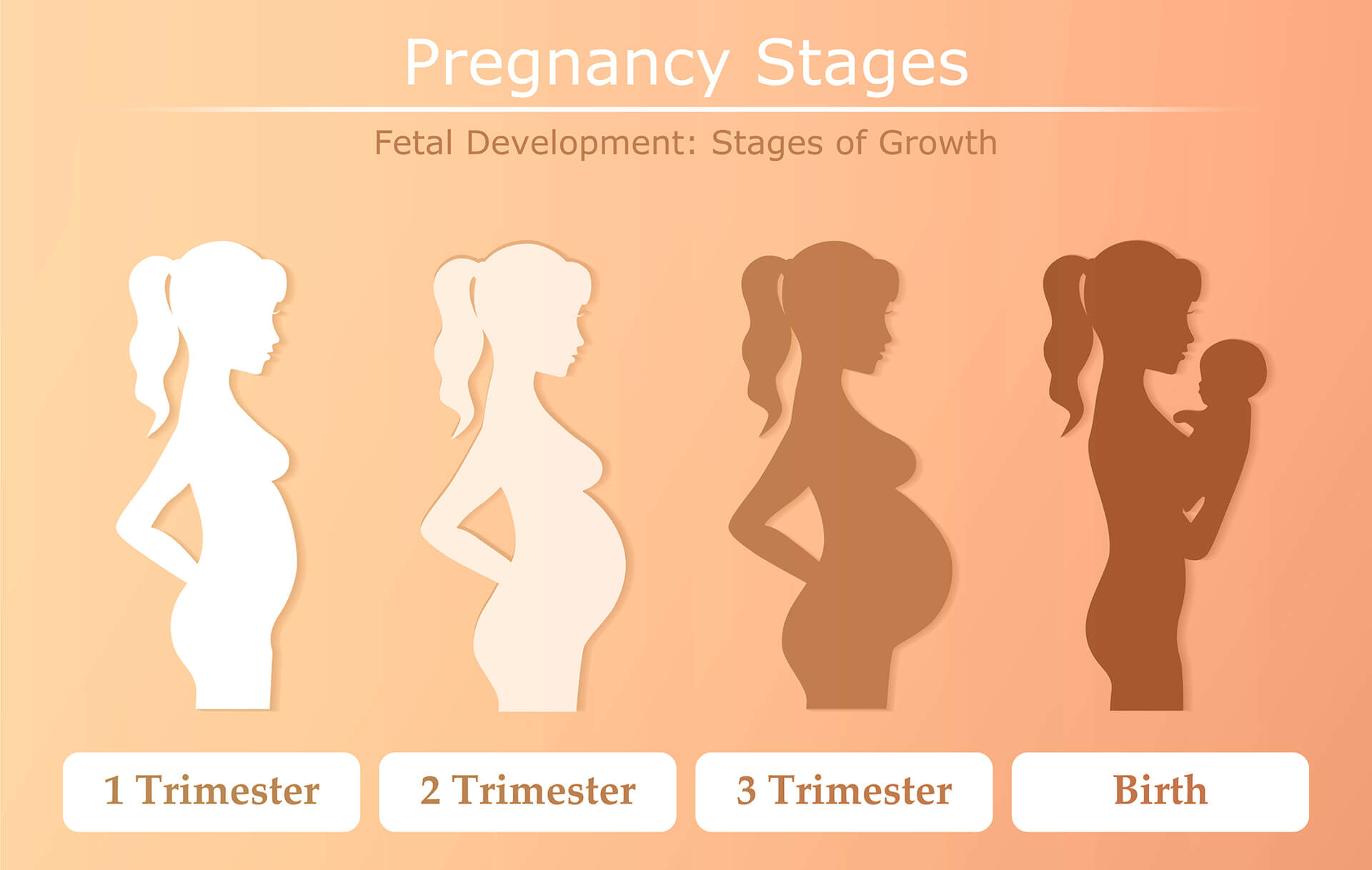
Stages of Pregnancy: A Comprehensive Guide
Pregnancy is a transformative journey that encompasses significant physical, emotional, and hormonal changes. Understanding the stages of pregnancy can help expectant mothers navigate this extraordinary experience with confidence and knowledge.
First Trimester (Weeks 1-12)
- Week 1: Pregnancy begins with the fertilization of an egg by a sperm.
- Weeks 2-3: The fertilized egg implants in the lining of the uterus, forming a blastocyst.
- Weeks 4-8: The embryo develops rapidly, forming the major organs and systems.
- Week 9: The embryo is now referred to as a fetus.
- Weeks 10-12: The fetus continues to grow and develop, with the formation of limbs, fingers, and toes.
Second Trimester (Weeks 13-27)
- Week 13: The fetus begins to move, and the mother may feel these movements as "quickening."
- Weeks 14-16: The fetus’s heartbeat can be heard through a stethoscope.
- Weeks 17-20: The fetus’s gender can be determined through an ultrasound.
- Weeks 21-24: The fetus’s skin becomes more visible, and its facial features begin to develop.
- Weeks 25-27: The fetus’s lungs begin to mature, preparing for breathing after birth.
Third Trimester (Weeks 28-40)
- Weeks 28-32: The fetus continues to grow rapidly, and its movements become more frequent and vigorous.
- Weeks 33-36: The fetus’s brain and nervous system undergo significant development.
- Weeks 37-40: The fetus is fully developed and prepares for birth.
- Week 40: The average length of a pregnancy is 40 weeks, but some babies may be born a few weeks earlier or later.
Physical Changes During Pregnancy
Throughout pregnancy, the mother’s body undergoes a series of physical changes to accommodate the growing fetus. These changes include:
- Enlarged uterus: The uterus expands to accommodate the growing fetus, causing the abdomen to protrude.
- Breast enlargement: The breasts prepare for lactation by increasing in size and developing milk ducts.
- Weight gain: The mother typically gains weight due to the growing fetus, placenta, amniotic fluid, and increased blood volume.
- Skin changes: The skin may become darker and develop stretch marks.
- Varicose veins: Increased blood volume can lead to the development of varicose veins in the legs.
- Constipation: Hormonal changes can slow down digestion, leading to constipation.
- Frequent urination: The growing uterus puts pressure on the bladder, causing frequent urination.
Emotional Changes During Pregnancy
Pregnancy can also bring about a range of emotional changes, including:
- Mood swings: Hormonal fluctuations can cause mood swings, from elation to sadness.
- Fatigue: The body’s increased energy demands can lead to fatigue.
- Anxiety: The anticipation of childbirth and the responsibilities of parenthood can cause anxiety.
- Increased libido: Some women experience an increase in sexual desire during pregnancy.
- Nesting instinct: In the later stages of pregnancy, women may experience a strong urge to prepare for the baby’s arrival.
Prenatal Care
Regular prenatal care is essential for monitoring the health of the mother and the fetus. Prenatal visits typically include:
- Physical exams: To check the mother’s weight, blood pressure, and overall health.
- Ultrasound scans: To monitor the fetus’s growth and development.
- Blood tests: To screen for genetic disorders and other health conditions.
- Urine tests: To check for infections and protein levels.
- Education and counseling: To provide information about pregnancy, childbirth, and parenting.
Preparing for Childbirth
As the due date approaches, it is important to prepare for childbirth. This includes:
- Creating a birth plan: Discussing preferences for pain management, delivery position, and other aspects of childbirth with the healthcare provider.
- Packing a hospital bag: Including essential items for the mother and the baby.
- Choosing a support person: Identifying someone to provide emotional and physical support during labor and delivery.
- Taking childbirth classes: Learning about the stages of labor, pain management techniques, and newborn care.
Conclusion
Pregnancy is a remarkable journey that involves significant physical, emotional, and hormonal changes. Understanding the stages of pregnancy and the accompanying changes can help expectant mothers navigate this transformative experience with confidence and knowledge. Regular prenatal care, education, and preparation for childbirth are essential for ensuring the health and well-being of both the mother and the baby.